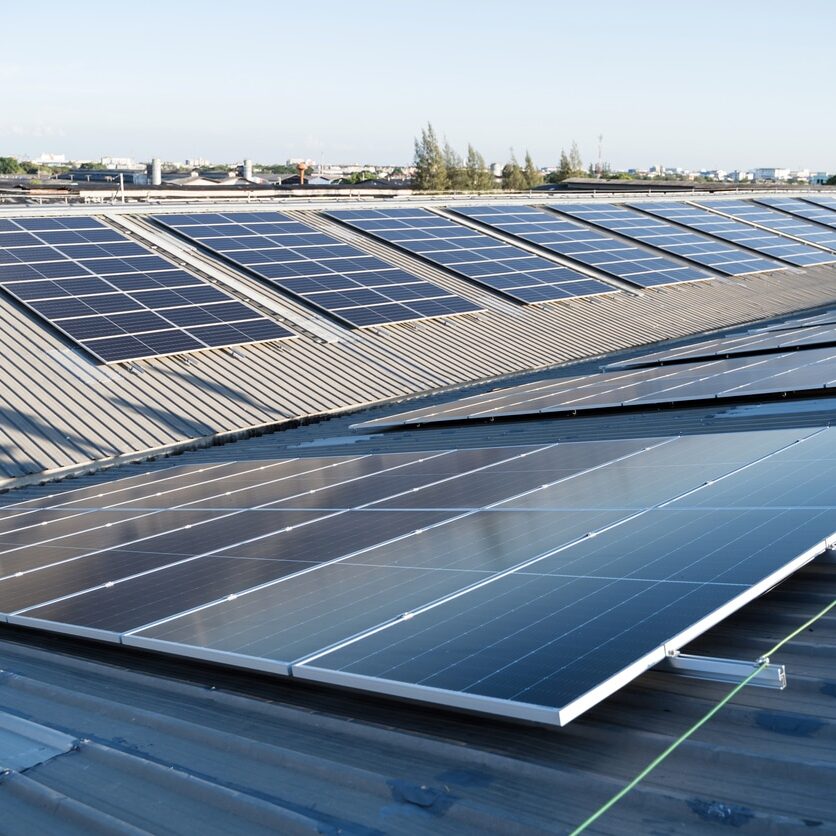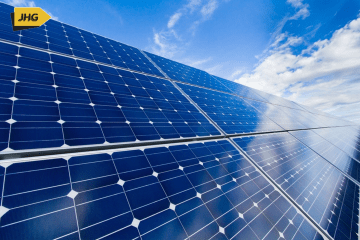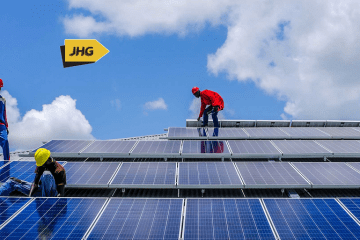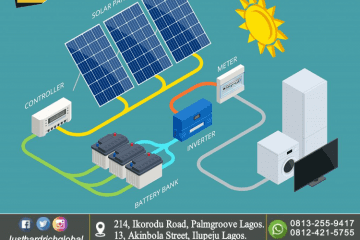As energy costs continue to rise and the demand for sustainable energy solutions grows, many homeowners are considering Solar Energy Storage Systems (ESS) as a viable option for achieving energy independence. These systems allow homeowners to store excess solar energy for use when needed, ensuring a reliable, cost-effective, and eco-friendly power supply.
At Just HardRich Global Resources Limited, we are committed to providing top-tier electrical power and control engineering solutions that cater to the needs of Nigerian homeowners. This blog post will explore the importance of solar ESS, detailing its advantages, cost implications, and how innovative energy storage technologies can benefit modern households.
Understanding Residential Solar Energy Storage Systems
To make an informed decision about installing a solar energy storage system, homeowners must first understand the different types of batteries available for storing solar power. Each battery type has its advantages and limitations, which influence performance, cost, and long-term viability.
1. Lead-Acid Batteries
Lead-acid batteries are one of the oldest and most commonly used options for solar storage. They come in three types:
- Flooded Lead-Acid (FLA): Requires regular maintenance and ventilation.
- Absorbent Glass Mat (AGM): Maintenance-free and spill-proof.
- Gel Batteries: Provides deep cycling capabilities and is ideal for off-grid setups.
Pros:
- Cost-effective and widely available.
- Reliable for off-grid solar systems.
Cons:
- Shorter lifespan (1,000–3,000 cycles).
- Requires regular maintenance.
- Low energy density and efficiency.
2. Lithium-Ion Batteries
Lithium-ion technology has gained widespread adoption due to its high efficiency and durability. These batteries offer a longer lifespan, faster charging, and a higher depth of discharge.
Pros:
- High energy density and efficiency.
- Long lifespan (2,000–10,000 cycles).
- Minimal maintenance required.
- Safe chemistry (especially Lithium Iron Phosphate – LiFePO4).
Cons:
- Higher initial cost.
- Requires a sophisticated battery management system (BMS).
3. Nickel-Cadmium (NiCd) Batteries
Nickel-cadmium batteries are known for their ability to withstand extreme temperatures, making them a good option for harsh environments.
Pros:
- Long lifespan and durability.
- Resistant to deep discharge damage.
- Performs well in extreme conditions.
Cons:
- Lower energy efficiency.
- Contains cadmium, which is hazardous to the environment.
- Memory effect reduces efficiency over time.
4. Sodium Nickel Sulphide Batteries
This emerging technology offers high energy density and is suitable for large-scale energy storage.
Pros:
- High cycle life (4,000–5,000 cycles).
- Reliable for stationary applications.
- Can store large amounts of energy.
Cons:
- Requires high operating temperatures (300–350°C).
- Higher initial cost due to additional heating requirements.
With advancements in energy storage technologies, Just HardRich Global Resources Limited provides cutting-edge solutions tailored to homeowners looking for efficient, durable, and cost-effective solar ESS options.
Why Homeowners Should Invest in Solar ESS
Solar Energy Storage Systems provide numerous benefits, including:
1. Maximizing Self-Consumption
One of the major advantages of a solar ESS is the ability to store excess solar energy generated during the day for use at night or during cloudy periods. This reduces dependency on the grid, lowering electricity bills and ensuring a more sustainable energy supply.
2. Reliable Backup Power
Power outages and unstable electricity supply are common in Nigeria. A solar ESS acts as a backup power source, ensuring that homeowners have uninterrupted access to electricity, even during grid failures.
3. Grid Independence
By reducing reliance on utility companies, homeowners can achieve greater energy independence and avoid fluctuating electricity prices. A solar ESS allows users to store and manage their power efficiently.
4. Virtual Power Plant (VPP) Applications
Virtual Power Plants (VPPs) integrate multiple solar storage systems to create a more stable and efficient energy network. Homeowners participating in VPP programs can optimize energy usage, contribute to grid stability, and even generate income by selling excess power back to the grid.
Financial Considerations: Is Solar ESS Worth It?
1. Understanding the Payback Period
The payback period for a solar ESS depends on installation costs, electricity savings, and government incentives. On average, homeowners can expect a return on investment within 5 to 10 years, depending on their energy consumption and system efficiency.
2. Long-Term Cost Savings
Investing in a solar energy storage system can reduce electricity bills by 50–80%. For example, a household consuming 10,000 kWh annually can save between ₦1.5 million and ₦2.5 million per year, leading to total savings of ₦37.5 million to ₦62.5 million over 25 years.
3. Government Incentives and Policies
Many countries offer tax credits, net metering programs, and subsidies for solar installations. In Nigeria, initiatives promoting renewable energy adoption can make solar ESS even more financially attractive.
At Just HardRich Global Resources Limited, we provide cost-effective solar solutions designed to help homeowners maximize savings while contributing to a greener future.
Latest Trends and Innovative Tools in Solar Energy Storage
The solar industry is evolving, with new trends shaping the future of energy storage. Some key innovations include:
1. AI-Powered Energy Management Systems
Artificial intelligence (AI) is revolutionizing energy management by predicting power usage patterns, optimizing energy storage, and reducing waste. AI-driven solutions help homeowners get the most out of their solar ESS.
2. Smart Solar Batteries
Advanced batteries with smart monitoring features allow homeowners to track energy usage in real time. These systems ensure optimal performance and efficiency.
3. Blockchain for Peer-to-Peer Energy Trading
Blockchain technology is enabling peer-to-peer energy trading, allowing homeowners to sell excess solar power directly to other consumers without involving utility companies.
4. Next-Generation Lithium-Sulfur Batteries
Emerging lithium-sulfur battery technology offers higher energy density and lower costs than conventional lithium-ion batteries, making solar ESS more affordable in the future.
By staying ahead of these technological advancements, Just HardRich Global Resources Limited ensures that homeowners receive the most efficient and future-proof solar storage solutions available.
Conclusion
For homeowners looking to reduce electricity costs, gain energy independence, and embrace sustainability, investing in a solar energy storage system is a wise and long-term investment. While the initial cost may seem high, the financial, environmental, and practical benefits far outweigh the expenses.
At Just HardRich Global Resources Limited, we provide customized solar energy solutions designed to meet the unique power needs of Nigerian homeowners. With our expertise in electrical power and control engineering, we help you achieve energy efficiency, reliability, and cost savings.
For inquiries, consultations, and installations, contact us today at +234 803 255 9417 or visit www.justhardrich.com.ng to learn more.




